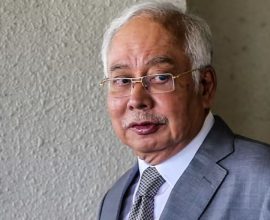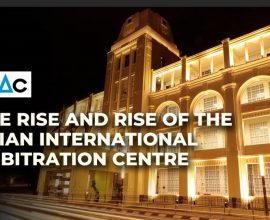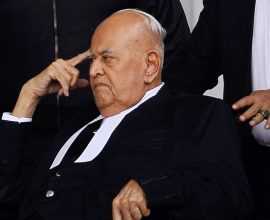Between elections, how many times can the King appoint a prime minister – or a State Ruler, a Chief Minister?
How many times can the monarch ‘exercise’ his constitutional, ‘appointing discretion’?
My view is: ‘Once’.
Why is that?
[1]. Monarch’s power to appoint a PM
It is my view, and only my view, that the monarch has the power to appoint a Prime Minister only once.
I will explain why.
[2]. There are several reasons for this…
The appointment of the PM requires several ‘constitutional processes.’
First, there must be a constitutionally valid election. After elections, MPs are chosen. They sit in the Dewan Rakyat, or the House of Representatives.
Before they first sit in Parliament, the majority of them customarily express support for one candidate: and thereby ‘select’ a PM candidate.
The candidate approaches the King, who having been granted an immediate audience, is compulsorily appointed as Prime Minister. [Article 43(2)]
[3]. What if the King says ‘No’ to a candidate?
That is a question of the monarch’s discretion.
Article 40(2) seems to suggest that the King does have a discretion in the appointment of a PM.
In my view, so far as the appointment process is concerned, any discretion is a very limited one or is probably non-existent.
This is because the moment a candidate ‘is likely to command the confidence of the majority of the members of the House of Representatives’, the Constitution says ‘(the King) shall first appoint’ the PM.
The word ‘shall’ removes any ‘discretion’ that the King may seem to possess in Article 40(2)(a).
Article 40(2)(a) reads: ‘the [King] may act in his discretion in the performance of the following functions, that is to say: (a) the appointment of a Prime Minister…’
Next, the way the Constitution is worded and in particular Article 43(1) is structured, the ‘Administration or Executive’ is a combination of the Prime Minister, the Cabinet the PM chooses, whose servants are the Civil Service.
All these three entities are constitutional creatures.
[4]. The first appointment of a PM
Next, the only time the King assumes the right to exercise his Majesty’s discretion is immediately after the general election.
That is a logical and proper argument for several reasons.
We shall come to that in a minute.
But what if a PM dies, or loses the confidence of the majority of the members of the House of Representatives?
Can another candidate approach the King, and offer himself as a PM candidate?
This is what has been plaguing Malaysia.
This is an illness that has recently afflicted the nation’s PM who seems to have no Parliamentary majority. Similar issues have befallen several Federated states over the last three decades.
This is because their respective Chief Ministers have not been able to muster or maintain the confidence of the members of their respective Legislative Assemblies.
Such disputes have raged for some decades. Several such chief ministers have filed complaints to the courts.
They asked whether a candidate vying for the post of a Chief Minister, who has lost the support of the majority members of a state legislative assembly could ask the hereditary ruler to substitute one CM for another.
We will come to these cases shortly.
[5]. Does the Constitution allow for consecutive appointments?
My view is – and mind you – it is only my view – that …
“ That protective, life-giving and life-sustaining spirit swirling within the Constitution, does not – and should not allow this.
Why?
After Parliament has convened, without the permission of the House of Representatives, the King cannot ‘exercise’ any ‘constitutional discretion’ to ‘consecutively appoint’ pm-candidates bearing ‘Support lists’.
The Federal Constitution is akin to the role of a mother lioness within a pride of lions: she will not allow hyenas to run-off with her litter. She would protect them with her life.
“ The Constitution is a lioness. She protects her charges – the constitutional processes.
That is my view.
[6]. The Rule of law, and the Separation of Powers
The principles of the Rule of Law, and the Separation of Powers,1Some argue these are the two sides of a coin as promulgated and practised by all the democracies, and as we understand it, firmly places the Right to Rule into the hands of the People.
Since you and I make up the citizenry, and we do not have the means to meet all the time and discuss what is important for the nation, we need to appoint representatives so that they can do this on our behalf.
Those representatives are MPs. The Dewan Rakyat rules for the people. If the people need to choose a new leader, that duty falls to the Dewan Rakyat.
Hence the citizenry devolves it – and delegates – its individual power to rule, over to the House of Representatives.
The MPs then meet at the House and determine which leader has the confidence.
Once they have made the decision, the King, or a ruler in the case of a federated state, merely rubberstamps the decision.
If the citizenry no longer has any confidence in any particular MP, then the electorate replaces the MPs at the next elections.
[7]. Who chooses a Leader? You are right!
It is the People.
And only the people’s representatives can determine that question – at least until the election arrives.
For prime ministership, the House of Representatives decides.
For Chief Ministership of the Federated States, the respective State Legislative Assemblies decide.
The Chief Ministers of each state are chosen by the same mechanism.
However, over the last two decades, several cases have been reported. These arose from disputes surrounding the appointment of chief ministers in Sabah, Sarawak, and latterly, in Perak.
These happened because state assemblymen in those states turned amphibian: they abandoned their support for their respective – and incumbent – Chief Minister.
They began to party-hop: with abandon, I might add – and let us call a spade a spade – because ‘hopping’ created personal profit.
[8]. What are the relevant Malaysian cases?
You know what these cases are. If you do not, I will list them here for you:-
(1). Stephen Kalong Ningkan v Tun Abang Haji Openg and Tawi Sli [1966] 2 MLJ 187;
(2). Tun Datuk Haji Mohamed Adnan Robert v Tun Datu Haji Mustapha Bin Datu Harun; Datuk Joseph Pairin Kitingan v Tun Datu Haji Mustapha Bin Datu Harun [1987] 1 MLJ 471;
(3). Datuk (Datu) Amir Kahar bin Tun Datu Haji Mustapha v Tun Mohd Said bin Keruak Yang di-Pertua Negeri Sabah & Ors [1995] 1 MLJ 169;
(4). Dato’ Dr Zambry bin Abd Kadir v Dato’ Seri Ir Hj Mohammad Nizar bin Jamaluddin (Attorney General of Malaysia, intervener) [2009] 5 MLJ 464; and
(5). Tan Sri Musa bin Hj Aman v Tun Datuk Seri Panglima Hj Juhar Hj Mahiruddin & Anor and another appeal [2020] 3 MLJ 46.
[9]. What do these Malaysian cases say?
These cases gave rise to a series of principles.
The broad principles that these cases gave birth to are these – and I paraphrase them here for you: –
(1). That the Head of State can refuse to dissolve the state assembly when a Chief Minister loses the confidence of the majority of the members of the State Legislative Assembly;
(2). That, alternatively, the Head of State has the ‘discretion’ to dissolve the State legislative assembly and call for elections;
(3). That the Head of State can create a procedure by which he can determine whether any particular candidate is ‘likely to command the confidence of the majority of the members’ of the legislative assembly;
(4). That the Head of State can demand the resignation of a chief minister whom he thinks has lost command of a majority of the members of the legislative assembly; and
(5). That the Head of State can choose to substitute one chief minister with another if the latter can show that he is ‘likely to command the confidence of the majority of the members of’ the legislative assembly.
Unfortunately, I find it difficult to reconcile some of these decisions with long-embedded principles of democracy.
[10]. Appointment of the PM
Any discussion on this subject requires, as an essential starting point, an understanding of how – and a little later why – the Federal Constitution operates the way it does.
The process (the ‘how’ part of it’) by which the King appoints a prime minister is set out in article 43.
Article 43(1) states: –
‘(1) the [King] shall appoint a Cabinet of Ministers to advise him in the exercise of his functions.
(2) the Cabinet shall be appointed as follows, that is to say:
(a). the [King] shall first appoint as Prime Minister to preside over the Cabinet, a member of the House of Representatives, who in his judgment is likely to command the confidence of the majority of the members of that House; and
(b). he shall on the advice of the Prime Minister appoint other Menteri (Ministers) from among the members of either House of Parliament;
but if an appointment is made while Parliament is dissolved, a person who was a member of the last House of Representatives may be appointed but shall not continue to hold office after the beginning of the next session of Parliament unless, if he has been appointed Prime Minister, he is a member of the new House of Representatives, and in any other case he is a member either of that House or of the Senate.’
[11]. Several state constitutions – except the peculiar constitution of Sabah – have an identical clause
Take the State of Perak for instance.
Article 16 in the Perak state constitution states:
‘(1) His Royal Highness shall appoint an Executive Council.
(2) The Executive Council shall be appointed as follows, that is to say –
His Royal Highness shall first appoint as Mentri Besar to preside over the Executive Council a member of the Legislative Assembly who in his judgment is likely to command the confidence of the majority of the members of the Assembly; and
He shall on the advice of the Mentri Besar appoint not more than ten nor less than four other members from among the members of the Legislative Assembly.’
Although the courts have impliedly construed these provisions, I have a different view.
Democracy is the institution of, by, and for the people, not that of a monarch.
I suggest that current Malaysian cases do not pay sufficient heed to history, or Parliamentary Conventions, or indeed, the underlying foundational theories of democracy.
They construe the law mechanically, sometimes, in a way that makes little democratic sense.
[12]. The change in the monarch’s role
The UK 1689 Bill of Rights, and the English 1700 settlement act, and which were afterwards promulgated as Parliamentary Acts, and accepted as being the foundation upon which the Malaysian Federal Constitution is based, accept the principle that it is only the people who can rule, not the monarch.
To the extent that the monarch has a place in the constitutional framework of both the United Kingdom and Malaysia, these are limited to those duties which the monarch carries out ‘on the advice of the Prime Minister or that of the chief minister of any federated state.’
[13]. The Cardinal principle
The principle is the King does not ‘rule’, he cannot rule by proxy (by choosing someone of his choice).
Neither does a monarch have any say as in which individual is to be elected as leader of the people.
If such a position is taken it flies in the face of 300 years of constitutional jurisprudence and principles of the rule of law.
To construe constitutional provisions granting powers or discretions to monarchs widely, and to disregard the role and function of legislative assemblies in a pedantic as opposed to a liberal, organic, and flexible manner in keeping with the spirit of law and the right of the people to rule themselves and to make decisions which individual should in my view is the correct approach.
[13]. The monarch’s one-time exercise of power of appointment
I yearn for the days when the judiciary will recognise these principles that the moment the King (or a State Ruler) appoints a prime minister (or a State Ruler, the Chief Minister), immediately after the election, any ‘constitutional discretion’ that he enjoys in ‘determining’ who is to be a leader, are dissolved.
Any process that determines the choice of who should be the next Prime Minister, [or a Chief Minister, as the case may be], should be left to the people’s representatives.
Once the people have expressed their choice, then the King, or the Ruler of the state, or the Governor thereof, is to adopt those suggestions.
Although I am bound to obey and respect the laws as they are promulgated by the court, I respectfully offer an alternative view for the consideration and discussion by jurists, constitutionalist lawyers and politicians so that we can return to the days when rulers respected the choice of the people and refused to taint their hands with any politics.
[15]. So, in conclusion…
My own view – based on what I have argued before this, is that the monarch may appoint a PM only once – and that too immediately after the elections.
So also, the ruler of every federated state.
When there is a vacancy in the office of the PM or the Chief Minister as the case may be, then the right to determine who should succeed the outgoing PM or the Chief Minister should be left entirely in the hands of the people’s legislature.
The sight of several leaders rushing to and fro the palace, bearing in their hands the list of candidates, which list and its components constantly change in accordance with the shifting winds, or the MPs nature is both disturbing and unacceptable to the people.
[The author wishes to express his gratitude to Olympian efforts of the Japanese artist, En. Samad Hassan, Chan Kok Keong for his original ideas, Dato Ilango Karuppannan, KN Geetha, JD Prabhkirat, GS Saran, Wan Nursalena Wan Abdullah, Amuthambigai Tharmarajah, Nathan Sithambaram and ‘Rajan’ Ratna Kumar.]





